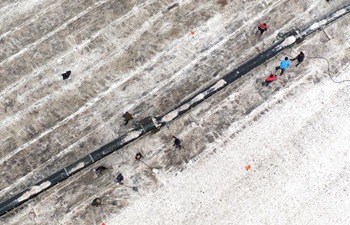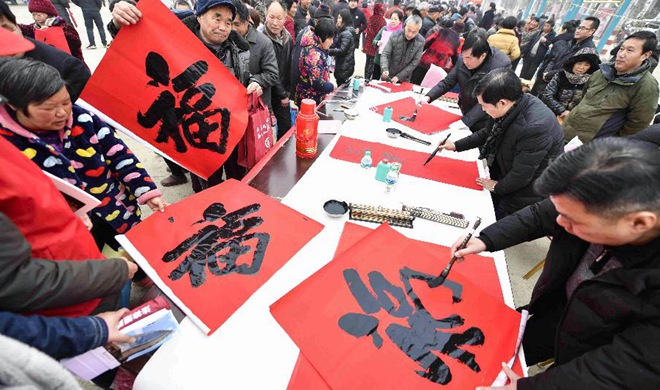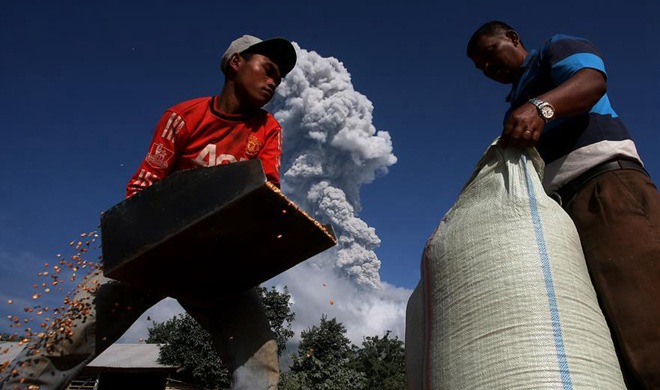ADDIS ABABA, Jan. 18 (Xinhua) -- The African Union (AU) Peace and Security Council on Thursday discussed the health security threats faced by the African continent.
The Council has agreed on joint strategies with the Africa Centre for Disease Control and Prevention (Africa CDC) to respond to infectious disease outbreaks, fight antimicrobial resistance and address the increasing threat of non-communicable diseases on the continent.
Speaking on the occasion, John Nkengasong, Director of the Africa CDC, urged multisectoral approaches and strategic partnerships to fight against disease threats and safeguard the continent.
The Council has underlined the need to strengthen Africa's public health agenda within the AU Peace and Security Architecture.
The Council recalled that the Ebola outbreak posed economic, security and social threats to the West Africa sub-region with soldiers being deployed on the streets to assist with the maintaining peace and security.
It was noted that Africa is also facing major threats of resistance to antibiotics with an estimated 4.1 million deaths per year and 42 trillion U.S. dollars loss to the African economy by 2050.
Africa is experiencing huge challenges from the hidden epidemic of non-communicable diseases such as cardiovascular diseases, cancers, respiratory diseases and diabetes, it said.
The Council noted that Africa CDC should work closely with the AU's military to further strengthen ongoing efforts in infectious disease pandemic preparedness and response, joint public health training on outbreak responses, logistics and supply chain management, regional stockpiles and strengthen health systems.
In Africa, emerging and re-emerging infectious disease threats are being driven by many factors: weak health systems, huge population growth expected to reach 2.5 billion by 2050, rapid urbanization, expansive mobility of people across and beyond the continent, climate change fueled by global warming, desertification and destruction of rain forests, and increased interaction between animals and humans.
"A major lesson from the Ebola outbreak is the need for the AU to put in place a medium to long-term programme to build Africa's capacity to deal with public health emergencies and threats in the future," said Abou Bakr Hefny, Chairperson of the Africa Peace and Security Council and Permanent Representative of Egypt to AU.
"The capacities and systems most needed, to prevent, detect and respond to public health threats must be reinforced in order to ensure that in the medium to long term, African countries attain and possess all International Health Regulations capacities and systems," said the Ambassador.
In January 2017, the pan-African bloc strengthened its health architecture by launching the Africa CDC and its regional collaborating centers in each of the five AU regions.

















